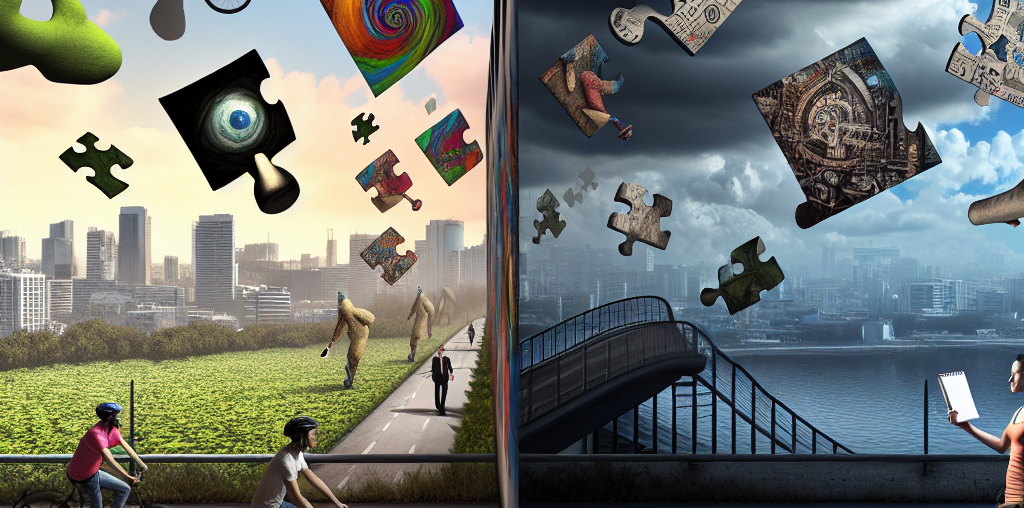Jon Ronson Explores Culture Wars, Conspiracies, and Cycleway Debates
In a world increasingly dominated by polarizing debates and contentious cultural divides, journalist and author Jon Ronson offers a compelling lens through which to understand the phenomenon. Known for his ability to dive headfirst into the more eccentric and hidden corners of society, Ronson has turned his attention to the simmering tensions that underpin today’s culture wars. From conspiracy theories to fiercely debated urban issues like cycleways, his observations provide fresh insights into the shifting dynamics of modern society.
What Are Culture Wars, and Why Are They Everywhere?
It is no secret that the term “culture wars” has increasingly crept into everyday discourse, but what does it really mean? At its core, it describes the ideological battles over societal values, identity, and progress. In recent years, these disputes have expanded beyond traditional arenas like politics or religion, infiltrating seemingly mundane aspects of life. This is the backdrop Jon Ronson investigates, asking: Why has everything become a battleground for opposing worldviews?
Whether it’s a viral social media controversy or arguments over urban infrastructure, such as cycle lanes, Ronson identifies a recurring pattern. Issues that should ideally unite communities often serve to divide them, as people bring their preconceived cultural and political biases into the conversation. Cycleways, for instance, are not just about urban planning anymore—they have become flashpoints for larger debates about climate change, government control, and personal freedoms.
How Conspiracies Fuel the Culture Wars
Jon Ronson has spent years exploring conspiracy theories, from fringe beliefs to large-scale movements. In today’s culture wars, conspiracies have become potent weapons, offering simple explanations for complex societal issues. Whether it’s the anti-vaccine movement or climate change denial, Ronson argues that these beliefs act as accelerators, feeding into cultural divisions and deepening mistrust.
Take the example of urban cycleways, which are often portrayed as benign projects meant to encourage safer, greener transport. Yet, in some circles, they are spun into elaborate conspiracies about government overreach or globalist agendas. Ronson highlights how these conspiracy theories gain traction, often appealing to people who already feel alienated or distrustful of institutions. The result is a spiral where public discourse becomes more about battling imaginary foes than solving real-world problems.
The Role of Social Media in Spreading Polarization
Of course, no conversation about culture wars would be complete without discussing the role of social media. Platforms like Twitter and Facebook, Ronson observes, amplify conflicts and distort debates. Algorithms favor outrage and controversy, ensuring that contentious posts about cycleways or conspiracies are seen by larger audiences. This not only escalates tensions but also incentivizes people to pick sides rather than seek common ground.
Social media also fosters echo chambers, where people are surrounded only by voices that reinforce their existing beliefs. This echo effect makes it easier for falsehoods or extreme viewpoints to take root, further entrenching divisions. Ronson suggests that the very design of these platforms contributes to the culture wars, turning every disagreement into a viral spectacle.
Cycleways: More Than Just a Bike Lane
One of the more unexpected battlegrounds in today’s culture wars is the debate over cycleways. At first glance, these bike lanes seem like a straightforward solution to urban congestion and environmental concerns. Yet, as Jon Ronson notes, they have become symbolic of larger ideological struggles. To some, they represent progress and sustainability; to others, they signify government overreach and the erosion of personal freedoms.
Ronson delves into how this seemingly innocuous topic has turned into a cultural flashpoint. Proponents of cycleways often find themselves vilified as urban elites or environmental extremists, while opponents are accused of being anti-progress or climate change deniers. The cycleway debate exemplifies how even the most practical discussions can transform into ideological minefields, driven by fear, mistrust, and competing narratives.
What Does This Say About Modern Society?
The fact that cycleways have become a microcosm of the larger culture wars reveals something profound about modern society. As Ronson observes, our collective anxiety about the future—whether it’s climate change, economic inequality, or technological disruption—often finds outlets in these smaller, more tangible debates. The result is a society where even the most mundane decisions are loaded with symbolic weight.
- People no longer debate just the merits of a policy; they debate what it represents.
- Every issue becomes a litmus test for broader ideological alignment.
- This polarization stifles collaboration and makes finding common ground increasingly difficult.
Jon Ronson’s Call for Nuance
Throughout his work, Jon Ronson has consistently championed the importance of nuance. In the age of culture wars, this perspective is more vital than ever. He challenges us to step back from the binary narratives that dominate modern debates and to consider the complexities behind the issues. Whether it’s cycleways, conspiracies, or any other flashpoint in the culture wars, Ronson believes that understanding each other’s fears, hopes, and motivations is crucial.
Ultimately, Jon Ronson’s exploration of culture wars serves as a reminder that these conflicts are not inevitable. They are the product of systems we’ve created—social media, political polarization, and a lack of trust in institutions. By addressing these root causes and fostering more empathetic conversations, there is hope for a less divided future.
Final Thoughts
As Jon Ronson dives into the heart of culture wars, conspiracies, and the unexpected battleground of cycleways, he offers a valuable framework for understanding this contentious era. His insights reveal how the smallest debates can carry the weight of larger societal struggles and highlight the urgent need for nuance and empathy. Whether you’re a cyclist, a skeptic, or just someone trying to make sense of today’s world, Ronson’s work encourages us all to take a step back and ask: What are we really fighting for?

